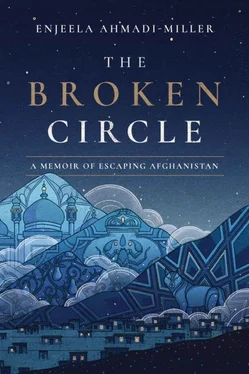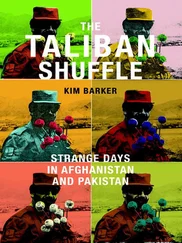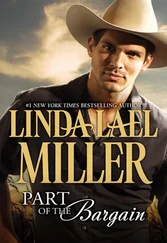I’d never seen Padar cook before, but he took over as the family chef. He organized the kitchen, took us to the markets to purchase food, and planned the meals. I wanted to learn to cook, and so I asked Padar to teach me. We spent hours in the kitchen together, and he taught me how to cut the beef for the kebabs and to steam the rice just right and season it till it was flavored the way we enjoyed it best. For the first time in our lives, we cooked and ate together and quickly fell into routines old and new. At night Padar would read to us as we all lay on the floor cuddled up with one another. During those days of waiting for our documents, he wrote poetry and read the poems to us in the evenings. He was an amazing poet. His recitations kept all of us in rapture, the way he spoke with such passion and feeling.
We had reading sessions like during our days in Kabul, but now Padar wasn’t drinking. These sessions weren’t about helping him maintain his sanity but more about him exploring his life, his soul, and how he’d been thrust out of everything he loved and had worked for. He seemed on a search for meaning. The words of the ancient and magnificent poets acted as his guides.
He encouraged all of us to recite for him, not only to exercise our memories, but as a form of meditation. We all worked to memorize his poems. I found poetry fascinating. The words that came to me as he read them gave me a way to understand my experiences, just as he searched his own emotions. I sat at his feet as he read from his favorite poets—Hafiz Shirazi and Rumi. It didn’t seem to matter what the poem was about, the words always came around to describing a way out of my fears—always through love and faith in God.
I had witnessed up close how rude and violent men were determined to force their version of love and safety on others using guns and blood. It didn’t matter what the men called it, political order or religious fervor, it was all from the same place—the hellish dark side of man that is motivated by hate.
Mina’s parents called selling their daughter into sexual slavery part of their tradition, and Mina’s husband treated her according to the dictates of his religion, but it was all the same. Their actions were motivated by hate. Hate is not from God. People who use religion to hate can’t love God. It is impossible.
The Parcham embraced communism as the superior social order, but they could only enforce their rule with bullets and armor. Their revolution stole from my father the fruits of his hard work and toil that had made my country a better place to live for so many people. Those dreary days in Kabul before we escaped, I witnessed Padar being stripped of more than his possessions: his deepest dignity. It was no excuse for his drinking, but I understood better now how he had let those demons take over.
An even deeper mystery I wrestled with was that I believed we existed in the hands of God. He evidently carries us with a light touch. He does not clench his fist around us and force any of us to hate or love—these are choices.
During the long days when he went off to the embassy, Padar demanded that we stay inside, even going to the extreme of locking the apartment door from the outside. The most we could do was stand on the small balcony and watch the kids on the streets. In those quiet days, I also began writing my own poems. Words just gushed up from somewhere; I wrote about the moon, the sun, the ocean, the flowers, the birds, and the mountains—and how, with the kiss of God, they all came to life. Padar read all of it, smiling as he went over each word, nodding in satisfaction, rocking gently in his chair as I sat at his feet.
“Everything that surrounds you, all this beauty, is the work of Allah,” he said one day, handing my sheet of poems back to me. There was a new gentleness to his voice. He seemed to have come to terms with his losses, and he truly enjoyed teaching me about poetry and writing. Sitting on the floor during those days, and writing poems and listening to him recite his poems brought relief and hope to each of us. I could see it on everyone’s faces. We didn’t live in the large and spacious home of Kabul, with servants and great luxury, but it was possible, maybe for the first time, to see true beauty, even in the devastation and sadness that surrounded us.
One day Padar took us to visit an old friend who had recently arrived. He lived in a very poor section of Islamabad, where many Afghan refugees were settling. Padar spotted his friend, Ali, standing outside a shabby apartment building in a section of Islamabad that looked worse than any part of Kabul. The streets were made of dirt; the buildings were run down, with paint peeling off in giant flakes as if they were shedding their skin. The cars on the street were beat up and noisy. Smoke from cooking fires straggled up into the atmosphere above the neighborhood. The smoke hovered in a cloud of despair that I could feel. Most of the people here had lost all their wealth or were forced to leave everything behind in order to escape to Pakistan. With scant money or few assets, they were forced to live in these deplorable conditions. It was harrowing to see my fellow countrymen being treated this way.
Padar and Ali greeted each other warmly. As they talked, I watched the kids playing in the streets. Every one of them was dirty; they looked the way we had after reaching the summit of the Hindu Kush. Many of them had tattered clothes. I could tell from the tone of Padar’s voice that he was saddened his friend had to live here.
“The refugee camps are far worse,” Ali said to him, as if reading my thoughts. “People have to live in tents. They’re sick all the time, and there is little medicine to go around. Many are dying.”
“Why?” Padar said, concern in his voice. “Even in the villages at home, people have access to medicines.”
Ali shook his head that it wasn’t so here.
“I must go and see this.” Padar spoke with determination that he wanted Ali to take him to the camp to see what could be done to help them.
Ali purchased food from a shop on the street. Padar hailed a cab, and all of us piled inside for a ride to the camp. When we arrived, I walked with Padar and Ali down the long row of tents. They were pitched in long lines with narrow streets that filled with swarms of kids playing with sticks and rocks. Rubbish was piled high, and the heat of the day must have made the canvas tents bake like ovens. The kids had a wild look to them, as if anything they determined to do, they could get away with. As we walked deeper into the camp, misery oozed from behind every tent flap. Most of the floors were dirt. Some had canvas or blankets laid over the ground, and possessions were strewn everywhere.
Ali began to hand out the food he had bought. Children gathered like metal flakes to a magnet until the crowd was dense, hands reaching and pleading for something, anything, to eat. His supplies vanished within a few minutes. They clamored for more, but the two men held their hands up to say that was all they had.
We went back to the camp every day. Padar always brought bread, fruit, and clothes to give to those in need. He had always been a charitable man, but he wasn’t working now, and I was nervous about money—residual feelings from our days in the Peshawar hotel, no doubt. I assumed we were living off money he had managed to bring with him. It wasn’t difficult to remember those days we spent cooped up in that hotel room in Peshawar waiting for him, each day our money running lower and lower. We could easily have been forced to live in these tents if he hadn’t shown up. But he had, and he had taken care of us so far, so I decided to trust that he knew what he was doing.
In the camps, I often ran with the kids, envious of the fun they had playing with other children their age. I made a friend with Youssef, whose whole family had died when a bomb exploded on his house. He was the only survivor. Another friend, Muzghan, had come with her family. They were farmers, and the war had destroyed all their crops and animals. With nothing left, they had decided to come and start a new life in Pakistan.
Читать дальше












